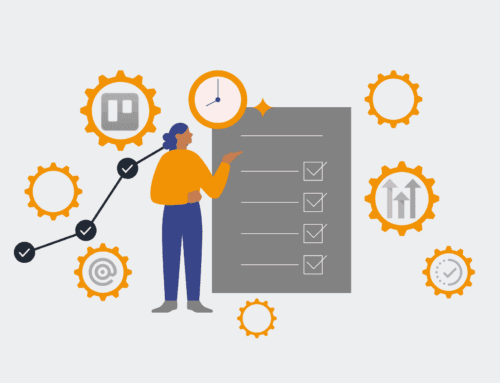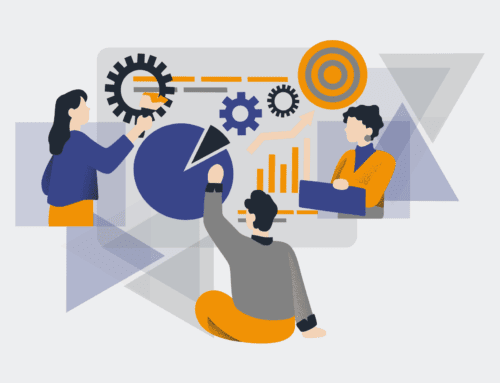Demystifying AI in HR: What Onboarding Teams Really Need to Know
The conversation around Artificial Intelligence in HR often feels like navigating a dense fog. On one side, you have the boundless promises of futuristic automation; on the other, the stark realities of overwhelmed HR teams trying to manage an influx of new hires with existing, often manual, processes. For onboarding teams, specifically, AI can sound like another layer of complexity or, worse, a threat to the human touch essential in welcoming new talent. At 4Spot Consulting, we believe it’s time to cut through the noise and demystify AI for what it truly is: a powerful, strategic partner for enhanced onboarding, not a replacement for human connection.
Many HR leaders and onboarding specialists approach AI with a mix of curiosity and skepticism. They’ve seen the headlines, heard the hype, but are struggling to connect the dots to tangible, beneficial applications within their daily workflows. The core concern often boils down to this: how can a technology that automates tasks enhance a process built on human interaction and empathy? The answer lies not in replacing humans, but in empowering them to focus on what matters most.
Beyond the Hype: Practical AI for Onboarding
Effective onboarding is a critical predictor of employee retention, productivity, and overall engagement. It sets the tone for a new hire’s entire journey. Yet, it’s often bogged down by administrative tasks: paperwork, system access requests, training module assignments, and constant communication follow-ups. This is precisely where AI, implemented strategically, transforms from a buzzword into an operational advantage.
Imagine a scenario where the mundane, repetitive elements of onboarding are handled autonomously, allowing your team to dedicate more time to personalized check-ins, mentorship pairing, and cultural integration. This isn’t a futuristic vision; it’s a present-day reality achievable with thoughtful AI integration. We’re not talking about sentient robots conducting orientation; we’re talking about intelligent systems that streamline, personalize, and optimize.
Automating the Mundane to Elevate the Meaningful
One of the most immediate impacts of AI in onboarding is its capacity for automation. Consider the journey from offer acceptance to the first day. This period is often a flurry of activity involving multiple departments and endless forms. AI-powered workflows can trigger the creation of necessary accounts, assign compliance training, send automated welcome emails with key information, and even initiate equipment orders based on role profiles.
Our experience at 4Spot Consulting shows that by eliminating these low-value, high-volume tasks, onboarding teams can reclaim significant hours. We’ve helped clients automate resume intake and parsing, saving over 150 hours per month – time that was then redirected to more strategic, human-centric initiatives. The goal is to remove the bottlenecks that prevent a truly engaging onboarding experience.
Personalization at Scale: Making Every New Hire Feel Valued
Another profound benefit of AI in onboarding is its ability to personalize the new hire experience at scale. A generic, one-size-fits-all approach often leaves new employees feeling like just another number. AI, however, can analyze data points like role, department, location, and even pre-onboarding survey responses to tailor the journey.
This might involve recommending specific training modules based on skills gaps identified during recruitment, connecting new hires with relevant internal mentors based on their interests and career goals, or even curating a personalized knowledge base of company resources pertinent to their immediate needs. This level of personalized engagement, driven by AI’s data processing capabilities, ensures that each new employee feels uniquely supported and understood from day one.
Data-Driven Insights for Continuous Improvement
Beyond automation and personalization, AI provides invaluable data insights. By tracking engagement with onboarding materials, completion rates of training modules, and even sentiment analysis from early feedback surveys, AI can pinpoint areas of friction or confusion in the onboarding process. This allows HR and onboarding teams to move beyond anecdotal evidence and make data-backed decisions for continuous improvement.
For instance, if AI highlights a consistent drop-off in engagement with a particular policy document, it signals an opportunity to re-evaluate its clarity or delivery method. If certain roles consistently struggle with specific system access, it points to a process that needs optimization. This iterative, data-driven approach is a cornerstone of our OpsCare™ framework, ensuring that automation infrastructure not only works but continuously evolves to meet organizational needs.
Integrating AI: A Strategic, Not Just Technical, Endeavor
Implementing AI in HR isn’t about simply buying the latest software. It requires a strategic approach that aligns technology with business objectives. Our OpsMap™ diagnostic, for example, helps identify the specific pain points and opportunities where AI and automation will deliver the greatest ROI for onboarding teams. It’s about understanding the ‘why’ before diving into the ‘how.’
The fear that AI will strip away the human element of HR is unfounded when implemented correctly. Instead, AI liberates HR professionals from the administrative burden, allowing them to truly connect with new hires, foster a sense of belonging, and build relationships that drive long-term success. It means shifting from being process managers to strategic talent advocates.
Ultimately, demystifying AI in HR means recognizing its role as an enabler. It’s a tool that amplifies human potential, streamlines complex processes, and personalizes experiences, all contributing to a more efficient, engaging, and successful onboarding journey. For onboarding teams ready to embrace the future, AI is not a hurdle, but a launchpad to excellence.
If you would like to read more, we recommend this article: The Intelligent Onboarding Revolution: How AI Drives HR Excellence and New-Hire Success









